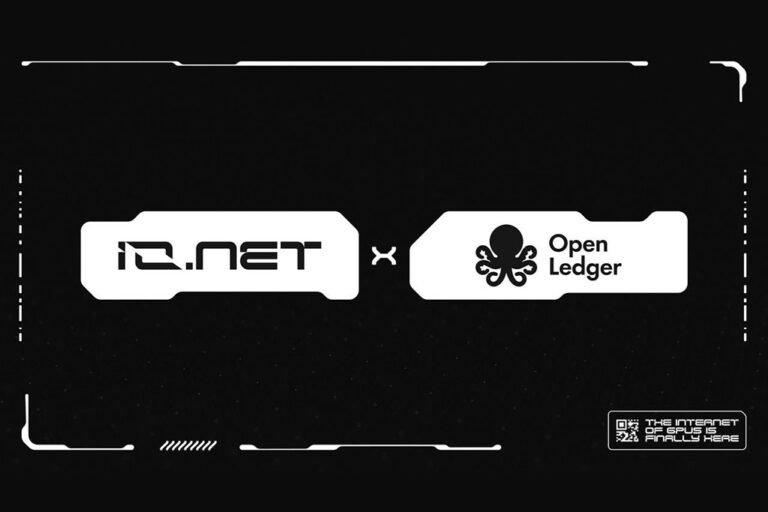OpenLedger can now access io.net’s GPU network to enhance AI model performance and scalability, meeting growing demands for decentralized solutions.
io.net, a decentralized GPU network, has partnered with OpenLedger, a prominent AI-focused blockchain company. The alliance aims to broaden the reach and efficiency of decentralized AI models and advance the intersection of blockchain and artificial intelligence. OpenLedger will use io.net’s distributed GPU infrastructure to speed up AI model development, opening new opportunities for Web3 technologies.
The partnership grants OpenLedger access to io.net’s advanced compute layer, tailored for high-performance AI tasks. This access allows OpenLedger to harness a powerful distributed GPU network, crucial for training, refining, and hosting AI models. The enhanced computational resources will enable faster development of smarter and more efficient decentralized applications, advancing AI’s capabilities.
Access to io.net’s GPU resources allows OpenLedger to optimize AI models for greater performance and scalability. This optimization positions OpenLedger to handle AI hosting and refinement more effectively, addressing the market’s increasing demands. By overcoming traditional cloud constraints, OpenLedger can better meet the growing need for decentralized and reliable AI solutions within blockchain environments.
The Power of Decentralized AI Models
The collaboration’s impact reaches beyond technical capabilities. OpenLedger’s data blockchain for AI is designed to provide high-quality, verifiable datasets, benefiting developers and businesses. By utilizing io.net’s decentralized GPU infrastructure, OpenLedger can process larger datasets, unlocking new AI use cases and enabling the development of more reliable, scalable models.
Tausif Ahmad, VP of Business Development at io.net, expressed enthusiasm about the collaboration. He emphasized how OpenLedger’s AI-focused blockchain provides Web3 builders with trusted decentralized datasets.
“We’re excited to partner with OpenLedger […] providing GPU compute, OpenLedger now has an infra provider to scale its AI models […] reinforcing its status as an innovative provider of decentralized AI models,” said Tausif Ahmad.
The joint effort will propel OpenLedger toward its goal of a fully decentralized, transparent AI ecosystem. Enhanced by io.net’s computational resources, OpenLedger can fine-tune its AI models, boosting their efficiency and scalability in practical applications.
A Cost-Effective Solution for AI Innovation
The collaboration also offers a cost-effective, scalable solution. Traditional cloud providers have high costs and limited scalability, but io.net’s decentralized GPU infrastructure provides a more efficient alternative. OpenLedger can now process larger datasets and deploy advanced AI models without centralized cloud service limitations.
As a data blockchain for AI, the company makes datasets publicly accessible, fostering a community-driven environment. This aligns with the demand for decentralized, transparent AI solutions. Utilizing io.net’s distributed compute network, OpenLedger is set to lead in developing reliable, scalable AI models that are trustworthy and accessible to the blockchain community.
next